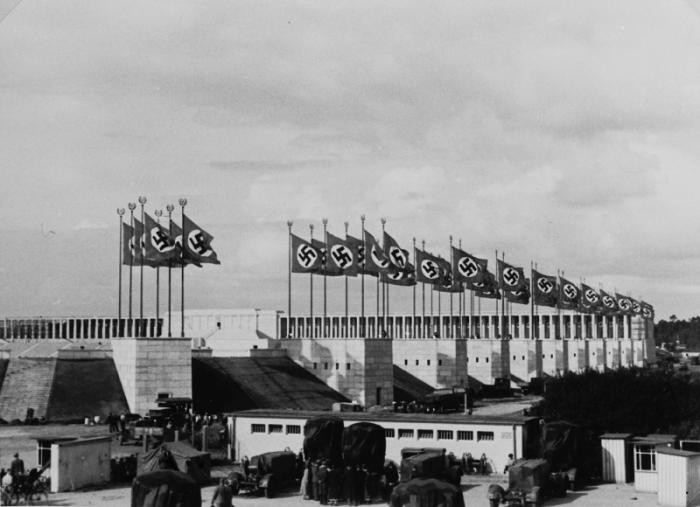
Law against the Founding of New Parties
The Law against the Founding of New Parties was one of a series of key decrees, legislative acts, and case law in the gradual process by which the Nazi leadership moved Germany from a democracy to a dictatorship.
Background
In another pivotal step in the transformation of German society from a democracy to a dictatorship, the Nazi leadership passed the Law against the Founding of New Parties. With this law, passed on July 14, 1933, all other political entities were disbanded or dissolved. As a consequence, some activists fled abroad. Others prepared to work within an illegal party framework. Some parties went underground and some simply dissolved from intimidation and pressure.
Germany became a one-party dictatorship led by National Socialists, whom the law made the only legitimate political party in the country.
Translation
Translated from Reichsgesetzblatt I, 1933, p. 479.
The Reich Government has decided on the following law and hereby proclaims it:
Article 1
The National Socialist German Workers Party is the only political party in Germany.
Article 2
The maintenance of the organizational cohesion of another political party or the founding of a new political party is punishable with prison of up to three years, or with jail from six months to three years, insofar as the act is not punishable with a higher penalty under other provisions of the law.
Berlin, July 14, 1933
Reich Chancellor Adolf Hitler
Reich Minister of the Interior Frick
Reich Minister of Justice Dr. Gürtner
Critical Thinking Questions
- What was the history of political parties in Germany?
- Why are political parties important? What protects their existence in a country?
- How can knowledge of the events in Germany and Europe before the Nazis came to power help citizens today respond to threats of genocide and mass atrocity in the world?

